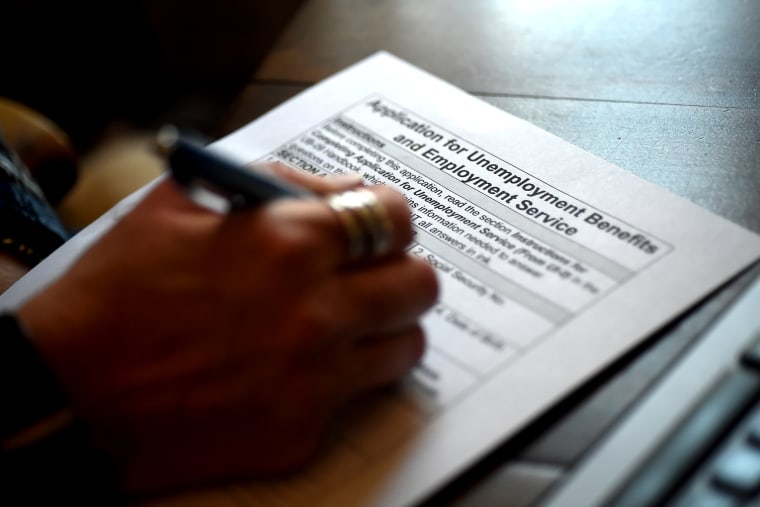When it comes to weekly unemployment filings, our whole understanding of "normal" flew out the window six months ago. For example, as regular readers know, it was considered a catastrophe during the Great Recession when jobless claims topped 600,000.
But in 2020, as the coronavirus pandemic started taking a brutal toll on the U.S. economy, Americans confronted an entirely new set of standards -- to the point that it seemed like relatively good news in September when initial jobless claims fell below 1 million for the first time since March.
Progress has nevertheless been hit or miss, though the new report from the Labor Department this morning pointed in a more encouraging direction.
In the week ending November 7, the advance figure for seasonally adjusted initial claims was 709,000, a decrease of 48,000 from the previous week's revised level. The previous week's level was revised up by 6,000 from 751,000 to 757,000. The 4-week moving average was 755,250, a decrease of 33,250 from the previous week's revised average.
As difficult as this may be to believe, today's report is the best we've seen on initial jobless claims since the crisis began in earnest in March. That said, we've now had 34 consecutive weeks in which the number of Americans filing for unemployment benefits was worse than at any time during the Great Recession.
All of which leads us back to the point we discuss ever week around this time: the country still needs economic relief as the coronavirus pandemic continues to take a brutal toll.
For what it's worth -- and it may not be worth much -- Senate Majority Leader Mitch McConnell (R-Ky.), fresh off his easy re-election victory last week, said at a press conference that he still intends to work on an economic aid package.
"As I've said repeatedly in the last few months, we need another rescue package," the GOP leader said. "Hopefully, the partisan passions that prevented us from doing another rescue package will subside with the election. And I think we need to do it and I think we need to do it before the end of the year." He added, "I think that's job one when we get back. Hopefully we get a more cooperative situation than we've had."
Of course, in reality, it was McConnell who refused to cooperate with the process in the months before Election Day.
As for the White House, Larry Kudlow, the director of the National Economic Council, said the day after Election Day that he still hoped to see an aid package advance during Congress' lame-duck session. Bloomberg News reported today, however, that the president's team intends to step back from the process and let Senate Republicans -- the ones who've spent months resisting ambitious efforts -- try to work something out.
At this point, the odds of success aren't great, and unless Democrats win both of Georgia's Senate runoff elections in early January, it's entirely possible there will be no additional economic aid, regardless of the need.

